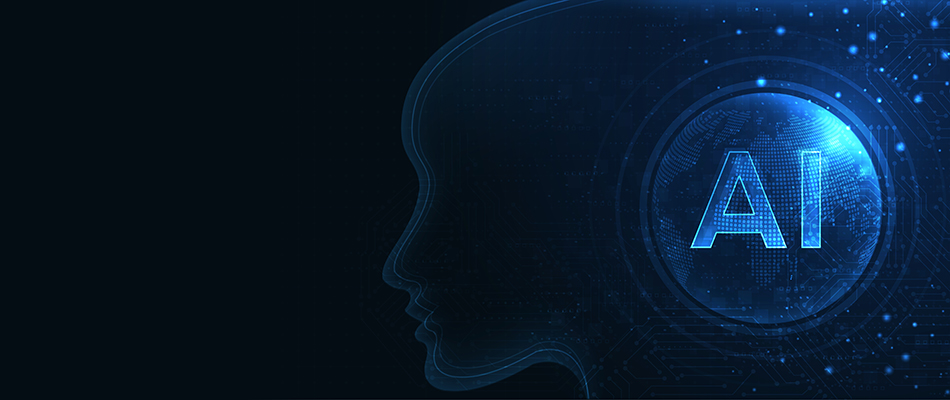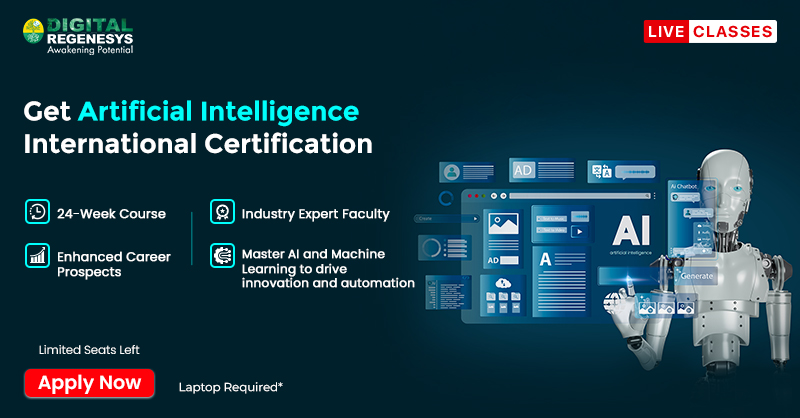7 Best Use Cases of Generative AI

Generative AI, encompassing technologies like large language models (LLMs), Generative Adversarial Networks (GANs), and diffusion models, is reshaping how businesses and creators approach tasks traditionally requiring human creativity. It is revolutionising industries by automating creative processes, enhancing productivity, and fostering innovation. From content creation to software development, its applications are vast and growing.
In this article, we will learn the best use cases of Generative AI, exploring its implications, future growth potential, and why professionals are increasingly turning to it.
What is Generative AI?
Generative AI refers to algorithms capable of creating new content, whether text, images, audio, or code, by learning patterns from existing data. Unlike traditional AI, which primarily focuses on classification or prediction tasks, Generative AI produces novel outputs that can be applied in numerous professional and creative contexts. Understanding the best use cases of Generative AI requires familiarity with main technologies such as:
- Large Language Models (LLMs) – Trained on extensive text datasets, these models generate coherent and contextually relevant text, powering applications like content creation and automated communication.
- Generative Adversarial Networks (GANs) – Comprising two neural networks working together, GANs create realistic images and videos by learning from existing data distributions.
- Diffusion Models – These models generate high-quality images and audio by iteratively refining noisy inputs, enabling applications in design, visual media, and entertainment.
Read more on Which Programming Language is Best for AI? here

Why Businesses and Professionals Are Turning to Generative AI
Generative AI has become a practical tool that businesses and professionals are actively integrating into their workflows. Understanding the best use cases of Generative AI helps organisations identify areas where it can drive efficiency, innovation, and measurable impact.
From automating repetitive tasks to enabling creative problem-solving, its applications span multiple industries, offering tangible benefits that improve productivity and competitiveness. The key advantages include:
- Efficiency and Productivity Gains – Automating tasks like content creation, report generation, and coding accelerates workflows and reduces manual effort.
- Innovation Potential – Generative AI enables the development of new products, services, and marketing strategies, helping companies stay competitive.
- Cost and Time Savings – By reducing reliance on extensive human resources for creative and operational tasks, organisations can optimise budgets and timelines.
- Competitive Advantage – Integrating Generative AI into business processes allows professionals to remain ahead in a rapidly evolving digital landscape.
Read more on How Can I Learn Artificial Intelligence: A Guide to AI Education and Career Paths here
Top 7 Use Cases of Generative AI Across Industries
The best use cases of Generative AI are being adopted across industries, reshaping how businesses and professionals approach everyday tasks. From marketing campaigns to healthcare breakthroughs, organisations are realising that Generative AI is a driver of efficiency, creativity, and data-driven decision-making.
Exploring the best use cases of Generative AI shows how this technology is delivering measurable results while unlocking future growth opportunities. Below are the most impactful applications across industries:
Marketing and Content Creation: Leveraging the Best Use Cases of Generative AI for Brand Growth
Generative AI is transforming marketing by automating content creation and personalising communication. Organisations are using AI to:
- Generate compelling blog posts, social media content, and email campaigns.
- Create tailored marketing materials that resonate with individual audiences.
- Maintain consistent messaging across multiple channels.
- Save time while driving higher engagement and conversion rates.
Design and Visual Media: How the Best Use Cases of Generative AI Enhance Creativity and Efficiency
In design, Generative AI enables rapid production of high-quality visuals, allowing teams to:
- Create AI-generated graphics and videos for websites, marketing, and social media.
- Simulate virtual product prototypes before physical production.
- Experiment with creative options without starting from scratch.
- Reduce costs and accelerate project timelines.
Software Development and Automation: Applying the Best Use Cases to Boost Productivity
Generative AI assists developers by enhancing coding efficiency and reducing errors. Key applications include:
- AI-assisted coding that suggests scripts or code snippets.
- Automated software testing to detect bugs and vulnerabilities.
- Streamlining repetitive tasks so developers can focus on strategic solutions.
- Improving overall software quality and delivery speed.
Research and Knowledge Work: Unlocking Insights with the Best Use Cases of Generative AI
Generative AI supports research and analysis by helping professionals:
- Summarise lengthy reports into concise, actionable insights.
- Analyse large datasets to uncover trends and patterns.
- Draft initial research documents to save time.
- Make informed, data-driven decisions quickly.
Customer Service and Chatbots: Implementing the Best Use Cases to Improve Client Experience
AI-driven tools enhance customer engagement and service efficiency. Examples include:
- Chatbots providing instant responses to common inquiries.
- Virtual assistants guiding customers through processes.
- Reducing response times and increasing satisfaction.
- Freeing human agents to handle complex or high-priority tasks.
Healthcare and Life Sciences: Exploring the Best Use Cases of Generative AI in Medical Innovation
Generative AI is revolutionising healthcare and medical research. Its applications include:
- Simulating drug discovery processes to identify potential treatments.
- Analysing medical images for accurate diagnosis.
- Offering personalised health recommendations based on individual data.
- Accelerating research timelines and improving patient outcomes.
Emerging Use Cases: Identifying New Opportunities Among the Best Use Cases of Generative AI
Beyond traditional industries, Generative AI is expanding into new sectors:
- Automating legal document drafting and review.
- Streamlining recruitment and HR processes.
- Developing adaptive and personalised learning platforms.
- Enhancing decision-making in creative and operational tasks.
Read more on Artificial Intelligence vs Cyber Security
Implications and Considerations for Businesses
The best use cases of Generative AI offer transformative potential, but businesses must carefully consider how to implement these technologies responsibly. While AI can drive efficiency, innovation, and cost savings, improper use may introduce risks such as ethical issues, data breaches, and workforce disruption. Understanding these considerations ensures organisations can harness the benefits of Generative AI while mitigating challenges. Key factors for businesses include:
- Ethical Concerns – Addressing bias, misinformation, and ensuring content authenticity.
- Data Privacy and Security – Protecting sensitive customer and organisational data from breaches.
- Upskilling Employees- Providing training so staff can work effectively alongside AI tools.
- Strategic Planning – Integrating Generative AI into existing processes thoughtfully and sustainably.
Read more on Which Programming Language is Best for AI? here
The Future of Generative AI
The best use cases of Generative AI are continuously evolving, shaping the way businesses, creators, and professionals operate. As AI technologies advance, organisations are discovering new opportunities to improve efficiency, drive innovation, and generate value. Understanding these developments is essential for decision-makers who want to stay competitive and strategically implement AI.
Listed below are some trends shaping the future of Generative AI:
- Technological Advancements – Continuous improvements in AI models and capabilities, enabling more sophisticated and accurate outputs.
- AI-Human Collaboration – Enhancing human creativity, decision-making, and problem-solving through AI augmentation rather than replacement.
- New Markets and Revenue Streams – Emerging opportunities across industries driven by innovative AI applications.
- Regulation and Responsible AI Adoption – Ensuring ethical, secure, and compliant implementation of Generative AI technologies.
Conclusion
The best use cases of Generative AI are transforming the way businesses, creators, and professionals operate. From automating content creation and software development to enhancing customer service and healthcare innovation, Generative AI is enabling organisations to work more efficiently, innovate faster, and gain a competitive advantage. Professionals who understand and apply these applications are better positioned to lead in a technology-driven world.
For those looking to develop practical AI skills and apply the best use cases of Generative AI strategically, the Digital Regenesys Certification Course in Artificial Intelligence offers a practical starting point to develop competency in the field.
Visit the Digital Regenesys website to enrol for our Artificial Intelligence course today!
Last Updated: 29 September 2025
